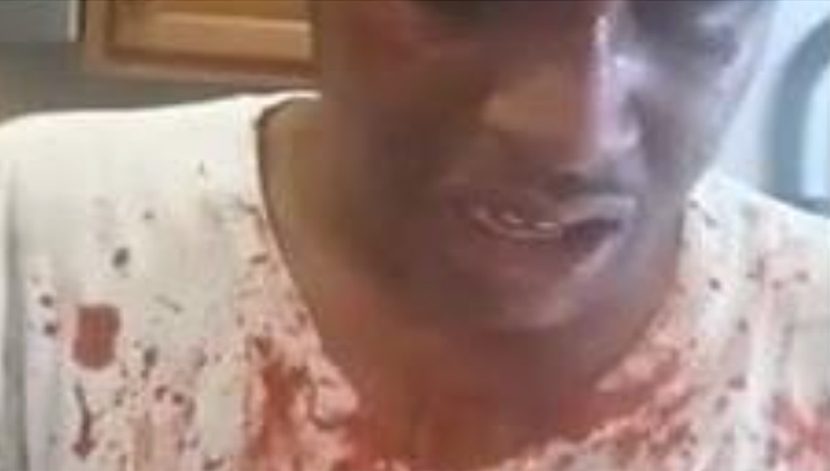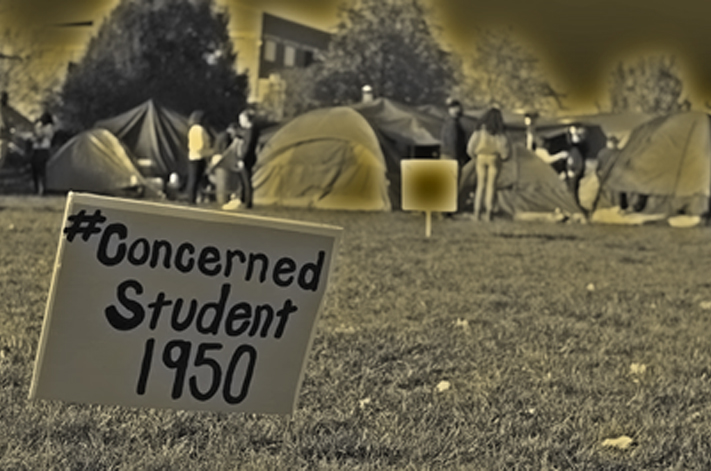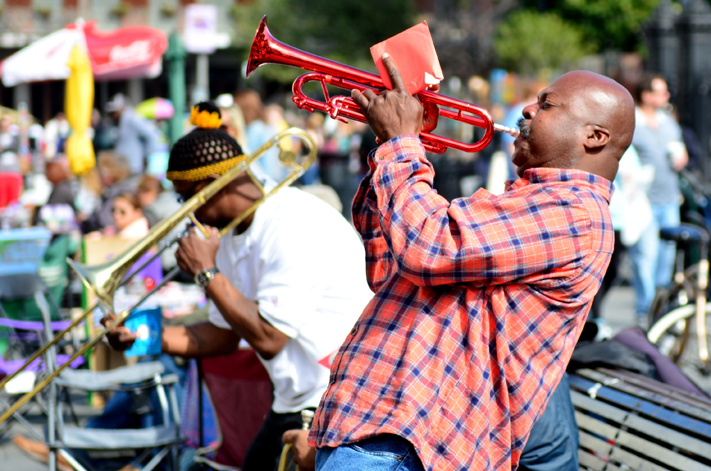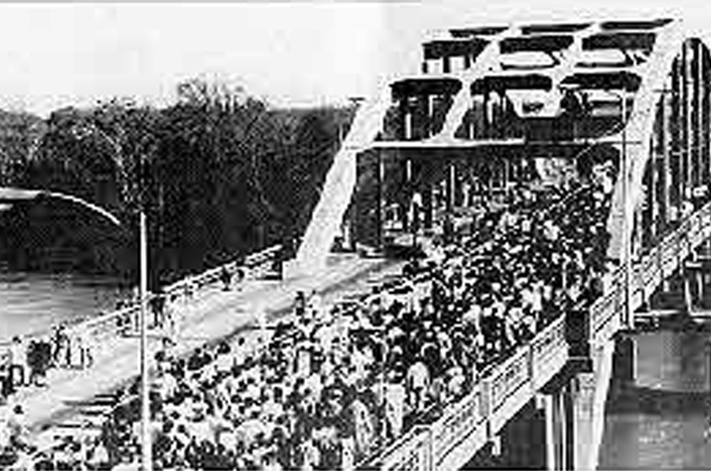Project Description
By Paul L. Thomas, Ed.D. | Originally Published at The Becoming Radical. November 13, 2014 | Photograph; Old Store Building Near Enoree, South-Carolina, by Author copyright bearden82
If you’re afraid they might discover your redneck past
There are a hundred ways to cover your redneck past
~ “Your Redneck Past,” Ben Folds Five
My maternal grandfather’s given name was Harold, but he went by “Slick.” As his first grandchild, however, I christened him “Tu-Daddy”—a child’s twisting of “two,” as in my second father.
But “two” also captures the two enduring images I have of him: (1) Harold/Slick lost his little finger on his left hand in the machinery of the yarn dyeing mill where he worked in the hills of North Carolina, and (2) virtually every time I saw him, Harold/Slick was barefoot—typically, sitting outside in nothing except a pair of cut-off jeans, silent and alone.
My name is also connected with “two” because I am a second, named after my paternal grandfather, Paul Lee Thomas, who people in my second hometown of Woodruff, SC, knew only as Tommy. And it was in second grade when my teacher, Mrs. Townsend, sent me into the hallway for arguing with her about my name.
When she took the first role (everyone in Woodruff knew everyone), Mrs. Townsend informed me that I was a junior, named after my father she stated with the assurance of a teacher, but I explained, “No, ma’am, I am named after my grandfather. I am a second.”
As was the case in my home, in school, children did not argue or correct adults so to the hall I went—although I was right, and she was wrong.
I was already petrified of Mrs. Townsend, a small woman, because I knew her husband, Corporal Townsend, a highway patrolman, whom I had met at my grandfather’s gas station that sat in the middle of town—the sign prominently stating, “Tommy’s 76.”
The yarn mills in the hills of North Carolina to the mill villages of Upstate South Carolina, then, are the fertile soil of my redneck past—working class families sometimes disrupted by alcoholism on one side and mostly living their lives with little or minimal formal education.
My mother finished one year of college (after attending 7 high schools because her family constantly moved), and my father graduated junior college (by then already with a full set of false teeth, having lost all his in high school). My father as an adult worked in machine shops, quality control, most of my childhood, and often came home with black grease under his fingernails and in the lines of his hands.
Even after retiring, my father worked in a machine shop part-time, under the weight of manual labor that taxed his arthritic shoulders (he depended on the kindness of his co-workers who often lifted parts for him).
This working-class upbringing that began for 6 or 7 years in Enoree, SC (nothing more than cross roads at the edge of the Enoree River) and then in Woodruff just to the north (a mill town with a wide main street that if you stood on one end you could see the other and the two stop lights along the way), however, was one of privilege as it was also nearly idyllic because my parents worked relentlessly to provide for my sister and me far about our working-class means.
The fruits of that work ethic in the 1960s and 1970s by working-class white families benefitted from a racial privilege in the South that working-class and working-poor families in the twenty-first century do not experience—primarily because of the shifts in racial demographics in how class has evolved in my lifetime.
However, my working-class background was real in the sense that my upbringing and eventual (and unusual for my family) series of college degrees resulting in a doctorate (all from state schools) have left me still extremely uncomfortable with affluence and imprinted on me a Southern drawl that many people continue to hold against me.
I am frequently accused of being ungrammatical when I talk (when I have not been), and I have even had students say directly to my face that I don’t sound smart—even though they know I am smart.
When students enter my university office, typically their first comment is—after scanning the entire wall of shelved books that loom over the small space—”Have you read all those books?” That seems unfathomable to these mostly affluent young people who do not suspect that this wall of books represents a very real self-defense mechanism of a permanent redneck.
You are damned right, I do not say, I have read all these books. Instead, I smile, explaining, “Of course, and there are this many more in my library at home.”
Formality, dressing up, fine dining, ceremony—all the trappings of upper-middle- and upper-class normality make me incredibly anxious, still—despite all my formal and informal education, however.
I am the embodiment of a powerful lesson about life: You can leave your redneck past behind, but you cannot erase your redneck past.
My formative years of junior and then high school included my uncle, aunts, and mother introducing me to The Firesign Theatre, Richard Pryor, and George Carlin. Concurrent with those revelations, I was wrestling with my desire to be an athlete.
By the age of ten, I had moved with my family from downtown Woodruff to the golf course just outside of town—itself a contradiction as a very redneck country club, including its racially segregating policies (blacks were not allow to join).
I fluctuated, then, between two vastly different athletic worlds as I worked at being a golfer and a basketball player—a very white world coming against a very black world.
I lived on a golf course that excluded blacks, and in my home town, blacks literally lived across the tracks in a neighborhood called Pine Ridge.
In tenth grade, I was the only white player on a 13-person junior varsity basketball team. At that time, I was sitting often in my room listening to Carlin and Pryor comedy albums over and over—perfecting their routines and crafting my own dexterity with the power of profanity.
The gift of swearing (possibly my first defense mechanism to mask my crippling low self-esteem), of course, transferred seamlessly from the basketball court onto the golf course, but basketball courts and golf courses could have easily in the 1970s been two different planets.
Those two different planets, though, were better schools than the school I attended, where I made As and Bs, mostly floundering on the bench of the school basketball teams.
My working-class, redneck upbringing had two important features (“two” again): my world was mostly a racist one, and the language I grew up in and with was deeply engrained with what people consider non-standard grammar, vocabulary, and pronunciation.
All of that collided, of course, with the education I was receiving from vinyl 33 1/3 albums that taught me lessons about race, class, and language that I was certainly not hearing in my home, community, or school.
After finishing my undergraduate degree, I returned to Woodruff to teach English (of all things) at the high school where I had graduated just five years before. My students were from Cross Anchor (even smaller then Enoree), Enoree, and Woodruff—the people and places of my early life.
Throughout nearly two decades teaching there, racial tensions remained, and most of my students reflected back at me my tangled history with the English language. We often laughed in those high school classrooms—my students and I. We often laughed at ourselves.
When I read William Faulkner’s As I Lay Dying aloud to my Advanced Placement students, we smiled, we laughed.
When I told them about the local news coverage of a tornado, and the person interviewed saying on air, “I knowed it, I seen it coming, it blowed the trailer off the cinder blocks,” we smiled, we laughed.
Many of the redneck white males I taught reminded me of my two grandfathers—slow moving, suspicious of everyone, and nearly silent.
A less funny joke of those years was that Woodruff was still 1957—frozen in time.
A few days ago, my Saturday cycling group took a course that rolled south of Spartanburg (the “city” of my childhood) into Enoree. When I told my friends I had grown up there, most were shocked; typically, I tell everyone I am from Woodruff.
Enoree that Saturday morning looked almost as it had when I was a child—except the mills are all dead, abandoned, just as they are throughout the back streets of Woodruff and all across the Upstate of SC.
I imagine people see poverty and my redneck past when they see Enoree or even Woodruff for the first time, but I certainly don’t.
I see a richness of memories—things I have overcome, things I carry with me still.
I imagine people hear a redneck when I talk aloud, despite my best effort to leave all that behind with book learning (I think of Huck Finn being berated by his abusive father).
These two places of my childhood were gifts, like my parents, precious gifts.
I often think of Tu-Daddy sitting alone, barefoot, turning a deep brown in the summer sun he adored.
Most of my childhood, he and my grandmother (people knew her as “Deed,” but we called her “Granny”) lived on a road named the same as their family name, “Sowers.”
A few acres were all that remained of a vast stretch of land once owned by their family before my grandfather.
I have watched as the world has pulled away from my working-class family. The poor, the working poor, and the working class have become sources of derision (not the friendly laughing at ourselves of my high school classes)—for their financial poverty, for their so-called poverty of language.
Like the two worlds of the golf course and the basketball court of my youth, two worlds have materialized around me as I have buried myself in books as a great escape from my redneck past.
And in the end, I am still that second grader, banished to the hall, embarrassed and frustrated because even when I am right, I feel inadequate, powerless.
I am the second, I think in a whisper, I am the second.
P. L. Thomas, Associate Professor of Education (Furman University, Greenville SC), taught high school English in rural South Carolina before moving to teacher education. He is a column editor for English Journal (National Council of Teachers of English) and series editor for Critical Literacy Teaching Series: Challenging Authors and Genres (Sense Publishers), in which he authored the first volume, Challenging Genres: Comics and Graphic Novels (2010). He has served on major committees with NCTE and co-edits The South Carolina English Teacher for SCCTE
This piece was reprinted by EmpathyEducates with permission. We thank the Author, Paul L. Thomas, Ed.D. for a reminder of where we all live. The past permeates the present and is the foundation for our future.










